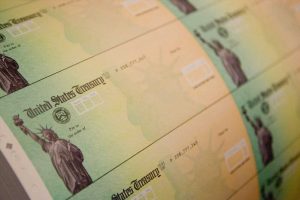How to get your full COVID stimulus check during tax season

More On:
money
Nearly 12 million Americans could lose stimulus checks under Biden’s new cap
Ripple cryptocurrency crashes as MoneyGram puts relationship on ice
Dave Ramsey, Christian finance guru, selling Tennessee home for $16M
GoFundMe releases money raised for ‘Gorilla Glue girl’
With Congress tightening eligibility for the third coronavirus stimulus checks, some Americans might want to strategically time their next tax return to get the full $1,400.
The Senate is poised to push through a proposal that would cut off any individual making more than $80,000 a year from receiving the pandemic relief payments.
Similar to last year’s stimulus bills, anyone earning up to $75,000 annually would get a $1,400 check, but that amount would shrink for people with incomes between $75,000 and $80,000. (Those thresholds double for married couples filing jointly.)
President Biden’s $1.9 trillion relief package is likely to pass right in the middle of income tax season, which is important because the feds will determine the size of an individual’s payment based on the most recent tax return they have on file.
Depending on how your financial circumstances changed last year, it may make sense to submit your 2020 return before Biden signs the legislation — or wait until the payments start going out — in order to collect the full $1,400.
The House version of the stimulus bill directs the US Treasury to issue the checks based on a taxpayer’s 2020 or 2019 tax return. It would be advantageous to get the 2020 return in soon if you lost your job or saw your income decrease for another reason last year.
Otherwise, the IRS will calculate your payment based on the 2019 return, which could mean you get less money or none at all if you made more than $75,000 that year. If that happens, you’ll be able to claim the amount you were eligible for but didn’t receive on your 2021 return a year from now.
On the other hand, people whose income increased in 2020 may want to wait until the IRS delivers a check based on their 2019 income, which could result in a larger payment depending on how much their earnings changed.
The stimulus legislation indicates you won’t have to pay back the difference if that happens. But you shouldn’t put it off too long, as the deadline for filing your 2020 return is April 15.
Of course, anyone who earned more than $80,000 in both 2019 and 2020 wouldn’t be eligible for a check regardless of when they file their tax returns.
All of the above depends on when the stimulus package is signed into law. Congress expects to pass the bill by the middle of this month, and the IRS could potentially start delivering checks within days after Biden signs it.
Share this article:
Source: Read Full Article


